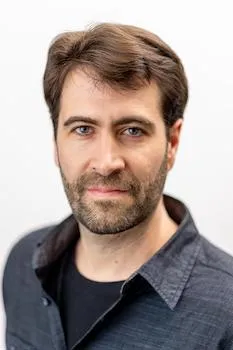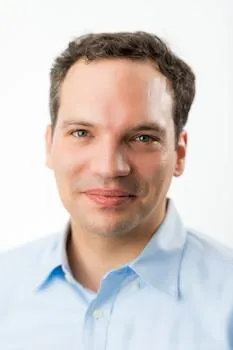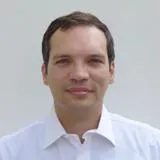Please note: this event has passed
You're warmly invited in-person or online to our first inaugural lecture event series with speakers from the Department of Chemistry, Professor Ismael Díez-Pérez and Professor Martin Ulmschneider.
The Inaugural Lecture Series from the Faculty of Natural, Mathematical & Engineering Sciences (NMES) celebrates the journeys and career successes of our newly appointed professors, to gain insight and inspiration from the faculty's leading scientists.
Ismael and Martin both Professors of Chemistry, will present talks about the groundbreaking research accomplished through their careers. Afterwards, there will be a chance to raise a glass to their achievements over a drinks reception.
Schedule:
- 16:45 - 17:00 Registration opens
- 17:00 - 17:05 Welcome/ opening remarks: Professor Mark French, Interim Executive Dean of the Faculty of Natural, Mathematical & Engineering Sciences
- 17:05 - 17:30 Small materials, big possibilities: How Nanoscience is changing the study of solid/liquid interfaces by Professor Ismael Díez-Pérez
- 17:30 - 17:35 Vote of thanks
- 17:35 - 18:00 Fighting back cancer: Biomedical applications for membrane-active peptides by Professor Martin Ulmschneider
- 18:00 - 18:05 Vote of thanks
- 18:05 - 18:10 Closing remarks: Professor Mark French, Interim Executive Dean of the Faculty of Natural, Mathematical & Engineering Sciences
- 18:10 - 19:00 Drinks reception
Small materials, big possibilities: How Nanoscience is changing the study of solid/liquid interfaces by Professor Ismael Díez-Pérez

Abstract:
The interface between solid and liquid is the scenario for several of the most important processes across Material Science, Chemistry and Biology – corrosion, electrolysis, and molecular recognition to name a few. Like in so many fields, Nanoscience has opened dynamic avenues of study for the processes taking place at these intersections.
In this talk I will outline in brief my search for a fundamental understanding of how an electrode surface changes in topography and electronic property after interaction with bespoke liquid chemical elements. We will touch on how the journey to uncover more about charge transport across synthetic and natural materials has impacted fields as broad as surface sciences, biological electron transfer, and scanning probe microscopy.
Speaker bio:
Dr Ismael Díez-Pérez is a Professor of Nanochemistry at King’s College London, having joined in 2017. Previously, having worked his way through the University of Barcelona, his PhD project centred on controlling passivation and corrosion processes at metal/electrolyte interfaces. He was awarded the Hans-Jürgen-Engell prize by the International Society of Electrochemistry in 2008 for his work, which also saw him take up training at the Lawrence Berkeley National Lab and the University Pierre and Marie Curie.
In his career, Ismael has also explored Molecular Electronics at Arizona State University, began development of a new field of Biomolecular Electronics, and been awarded an ERC Consolidator award focused on studying the effects of force fields in Biology. His research interests include how charge is transported in synthetic and biological materials at the nanoscale.
Fighting back cancer: Biomedical applications for membrane-active peptides by Professor Martin Ulmschneider

Abstract:
Membrane-active peptides, small chains of amino acids which form the basis of proteins and interact with cell membranes, are essential for a wide range of critical cellular processes – but largely remain poorly understood. With their continued study comes the possibility of more and more impactful biomedical application.
I’ll be sharing an overview of my career through the pursuit of peptide application to treat cancer, where previous treatment has focused on antimicrobial avenues. I’ll outline how simulation-guided approaches led to the development of a new class of membrane-active peptides with strong anticancer activity, with trials indicating effective tumour growth inhibition of invasive triple-negative breast cancer.
Speaker bio:
Professor Martin Ulmschneider is Head of the Department of Chemistry at King’s College London, having taken the post in 2022. Before joining King's, Martin was an Assistant Professor at John Hopkins University working on biomaterials. Martin took his DPhil at the Laboratory of Molecular Biophysics working on membrane protein simulations, which was followed in turn by a number of international fellowships from the Wellcome Trust, Human Frontiers and the EU. This allowed him to continue his work on membrane protein folding and membrane active peptides at the Indian Institute of Science in Bangalore, the University of Rome La Sapienza, Oxford University, Utrecht University, the University of California, Irvine, and Birkbeck College, London.
He leads the Ulmschneider group, which researches how peptides and proteins interact with cellular membranes and carry out their biological functions.
Disclaimer: For in-person events we operate a policy of overbooking, given drop-out rates. Please ensure you arrive in good time to avoid disappointment on the day.
Livestream:
- This event will be livestreamed from 17:00 to 18:20 and a recording will be shared on the NMES Faculty YouTube channel.
- You will receive the livestream link closer to the event.
Photography and videography: The event you will be attending will have photography and videography. If you do not wish to appear in any recordings or photographs, please approach our registration team on the day of the event or email nmes-events@kcl.ac.uk before the event. Photographs and recordings taken may feature in our publications or on the King’s website and social media channels. All personal data will be processed in accordance with King’s privacy policy available on request or at www.kcl.ac.uk/terms/privacy.
Privacy notice:
We collect and process your personal information to help us manage and run the event. In accordance with the King’s College London Data Retention Schedule, we will keep your information until the completion of the event. To find out more about how the university deals with your personal information, including your rights, please see the university’s core privacy notice. Your personal information will be transferred to the United States via Eventbrite. Please read the article where you can find out more on how Eventbrite protects your data.
Event details
Great Hall, Strand CampusStrand Campus
Strand, London, WC2R 2LS


